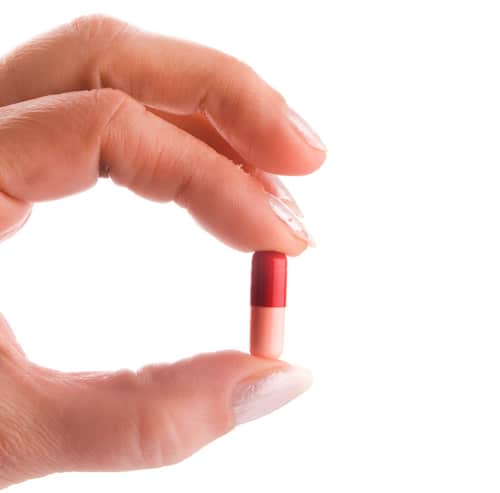 Many people take a multivitamin every day in the belief it gives them extra insurance against disease. Myths about vitamins prevail, and it’s easy to buy supplements you don’t need because they’re advertised and over-hyped. Here are 5 common myths about the daily multivitamin.
Many people take a multivitamin every day in the belief it gives them extra insurance against disease. Myths about vitamins prevail, and it’s easy to buy supplements you don’t need because they’re advertised and over-hyped. Here are 5 common myths about the daily multivitamin.
Taking a Multivitamin Will Protect You against Disease
Two large studies involving almost 250,000 people showed that people who took a daily multivitamin had a similar risk of getting cancer and heart disease as those who didn’t. In addition, they don’t appear to protect against colds or flu. One study published in the Archives of Internal Medicine even showed that taking multivitamins was linked with a slightly increased risk of premature death.
The best way to get to vitamins and minerals is naturally by eating a healthy diet, but not everyone does that. If you don’t eat 5 to 7 servings of fruits and vegetables a day if you have certain medical problems that reduce the absorption of vitamins, if you’re restricting calories or if you eat a vegan diet, you may benefit from taking a multivitamin to fill in the nutritional gaps. Women who are pregnant need iron and folate, but they shouldn’t take a multivitamin without consulting a doctor since higher levels of some vitamins like vitamin A are linked with birth defects.
One vitamin that many people don’t get enough of is vitamin D. The best source of vitamin D is the sun, and it’s hard to get enough of this vitamin through diet. Most multivitamins contain 400 IU of vitamin D, which isn’t enough to boost vitamin D levels that are already low, but it may help you avoid vitamin D deficiency if you’re not deficient.
Taking a Multivitamin Gives You Energy
There’s no evidence that supplementing with a particular vitamin and mineral will boost your energy level if you eat a healthy diet. If you’re deficient in iron or have iron deficiency anemia and are fatigued, an iron supplement will boost your energy levels. On the other hand, you shouldn’t take a multivitamin with iron unless your iron levels are low. Too much iron can increase the risk of health problems.
Deficiencies in B vitamins can also contribute to fatigue, but only if you’re not getting enough in your diet. The best way to prevent fatigue and boost your energy level is to make sure you’re getting proper amounts and ratios of macronutrients like carbohydrates, protein, and fat in your diet.
It Doesn’t Matter When You Take a Multivitamin
Some components in a multivitamin are absorbed best with a meal, especially fat-soluble vitamins like vitamin A, D, E and K. You could be shortchanging yourself if you take your multivitamin without food. Some people also get an upset stomach, especially if they take a multivitamin that contains iron.
The Best Multivitamins Cost More
Research carried out by ConsumerLab.com found that price doesn’t always determine quality. Even big name brands don’t always contain the exact amounts of vitamins and minerals that they claim. One sign of quality is if a brand carries a USP seal. This show that it’s been tested and contains what it says on the label.
A Multivitamin Contains the Ideal Amount of Each Nutrient
Some multivitamins contain very low amounts of some ingredients due to cost considerations and may not meet the RDA or recommended daily requirement for all nutrients. Some multivitamins also contain fish oil, but the amount in these formulations may not be enough to have heart-protective benefits. It pays to read the label carefully.
The Bottom Line?
Before relying on a multivitamin to supply your nutritional needs, make sure you’re eating a healthy diet that contains whole grains and fruits and vegetables. Whole, unprocessed foods are the best source of vitamins and minerals, but if your diet is lacking, talk to your doctor about taking a multivitamin.
References:
Nutrition Action Health Letter. September 2011. “Multiplex: What You Need to Know about Multivitamins”
Arch Intern Med. 2011;171:1625-1633,1633-1634.
Related Articles By Cathe:
Do Multivitamins Do More Harm Than Good?
Vitamins, Minerals, & Athletic Performance: Which Micronutrients Are of Greatest Concern?
Why Whole Foods Are Better Than Supplements
Do Micronutrient Deficiencies Increase the Risk of Cancer?
Do You Need More of Certain Vitamins as You Age?
Immune Health: Are You Getting Enough of These Micronutrients?

